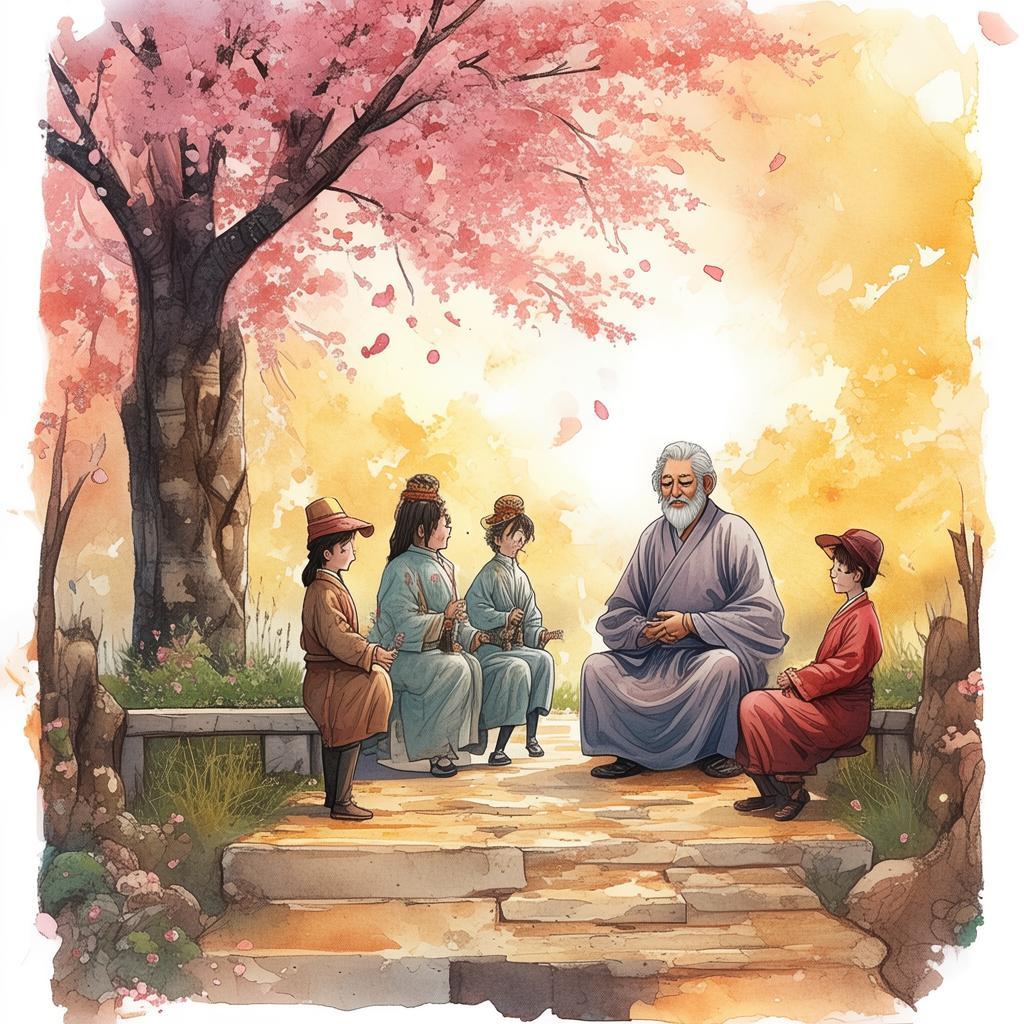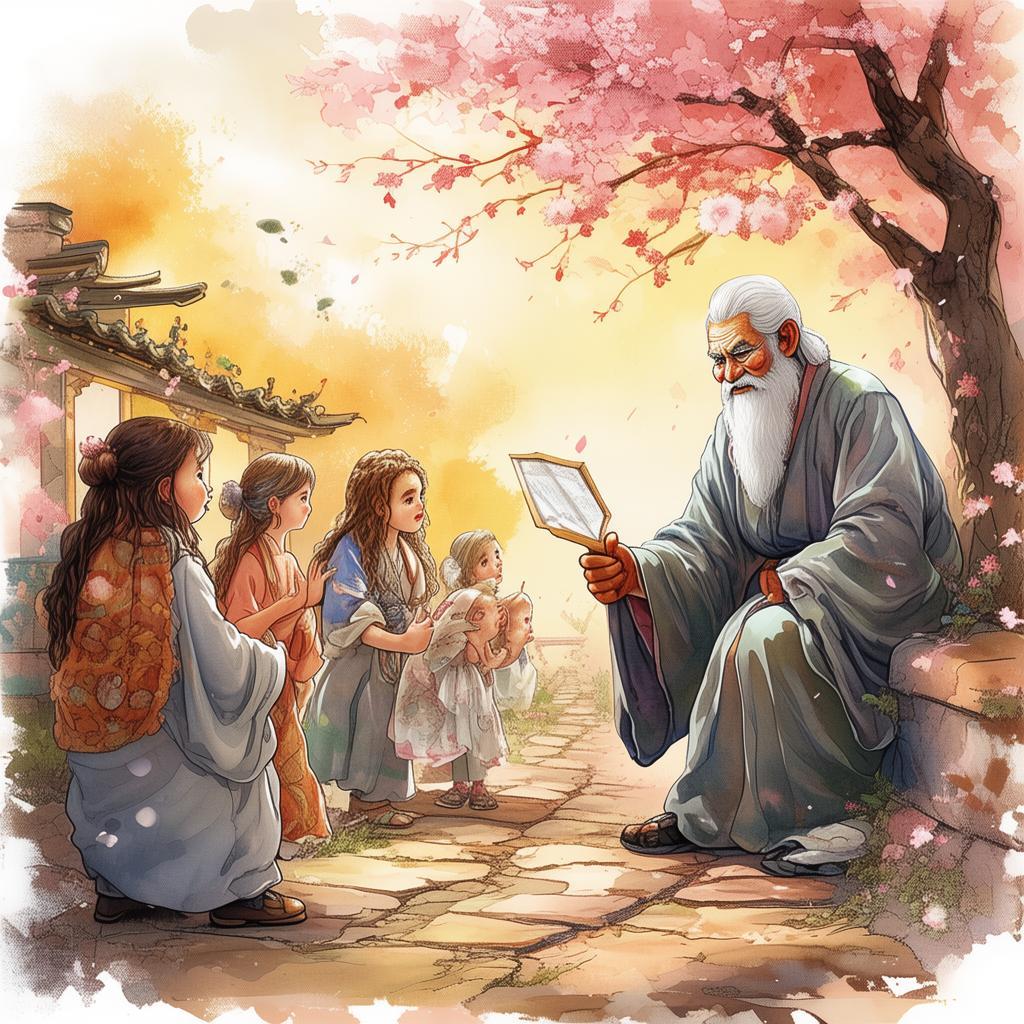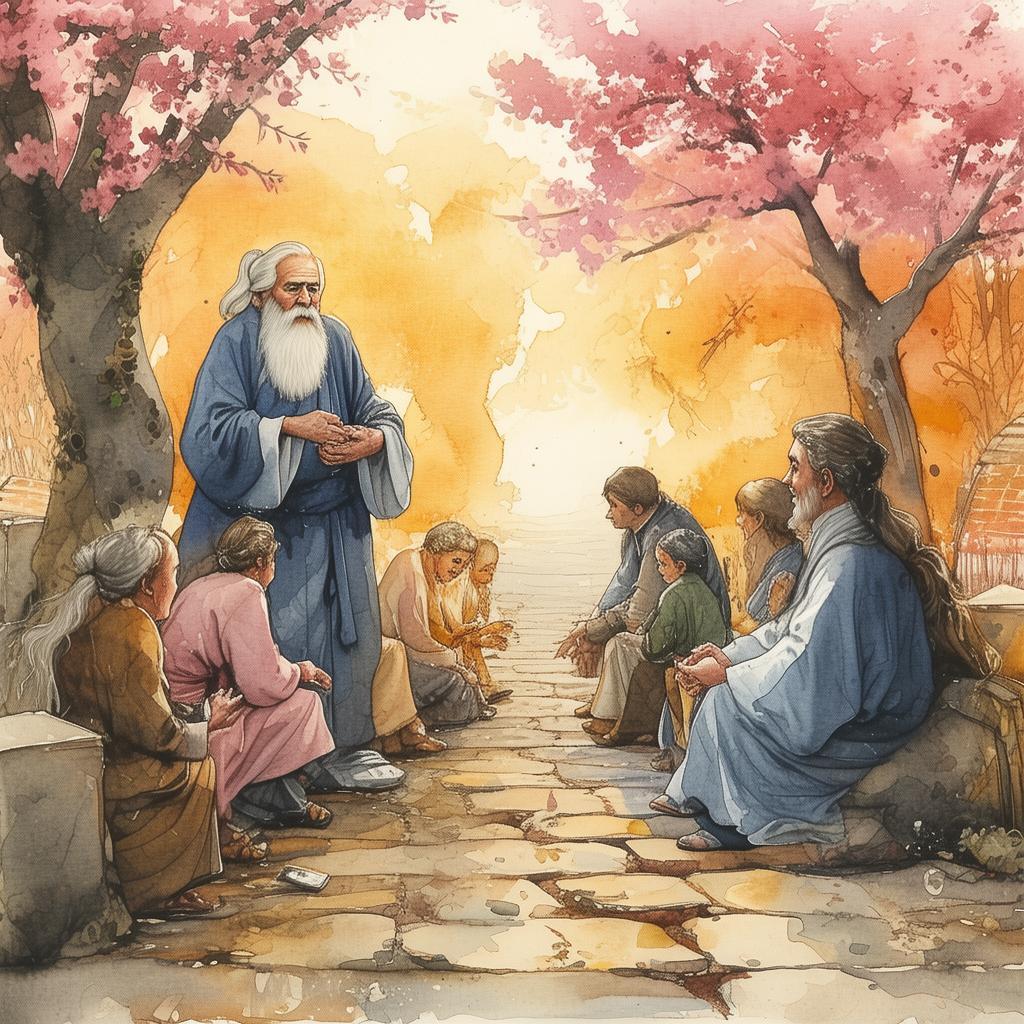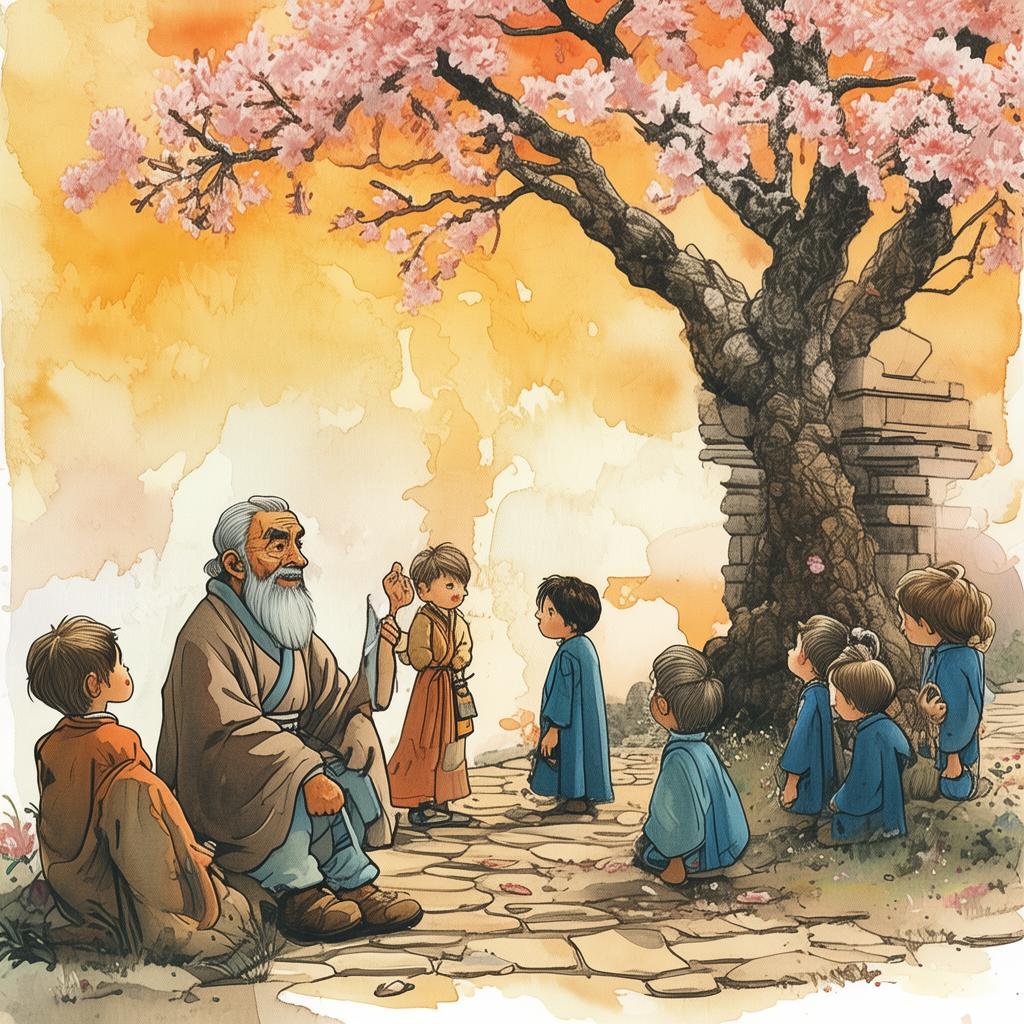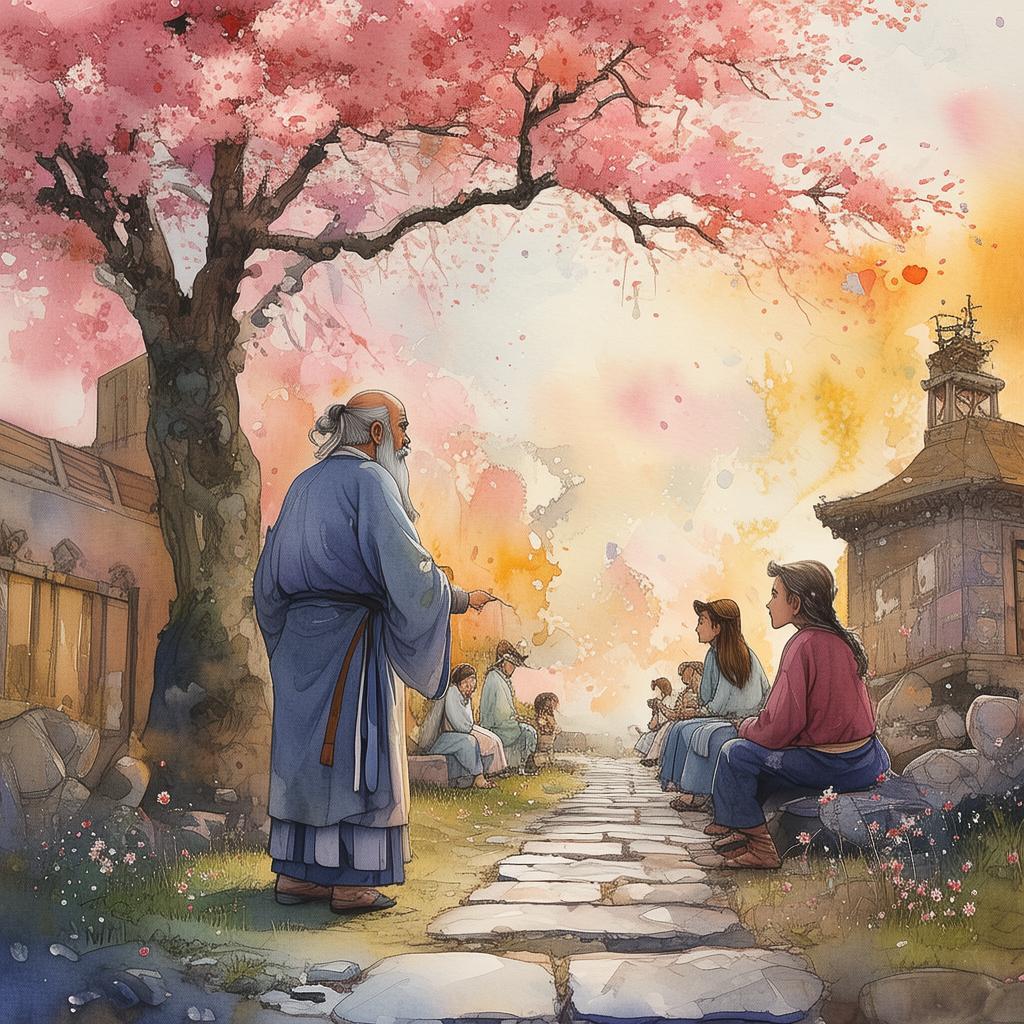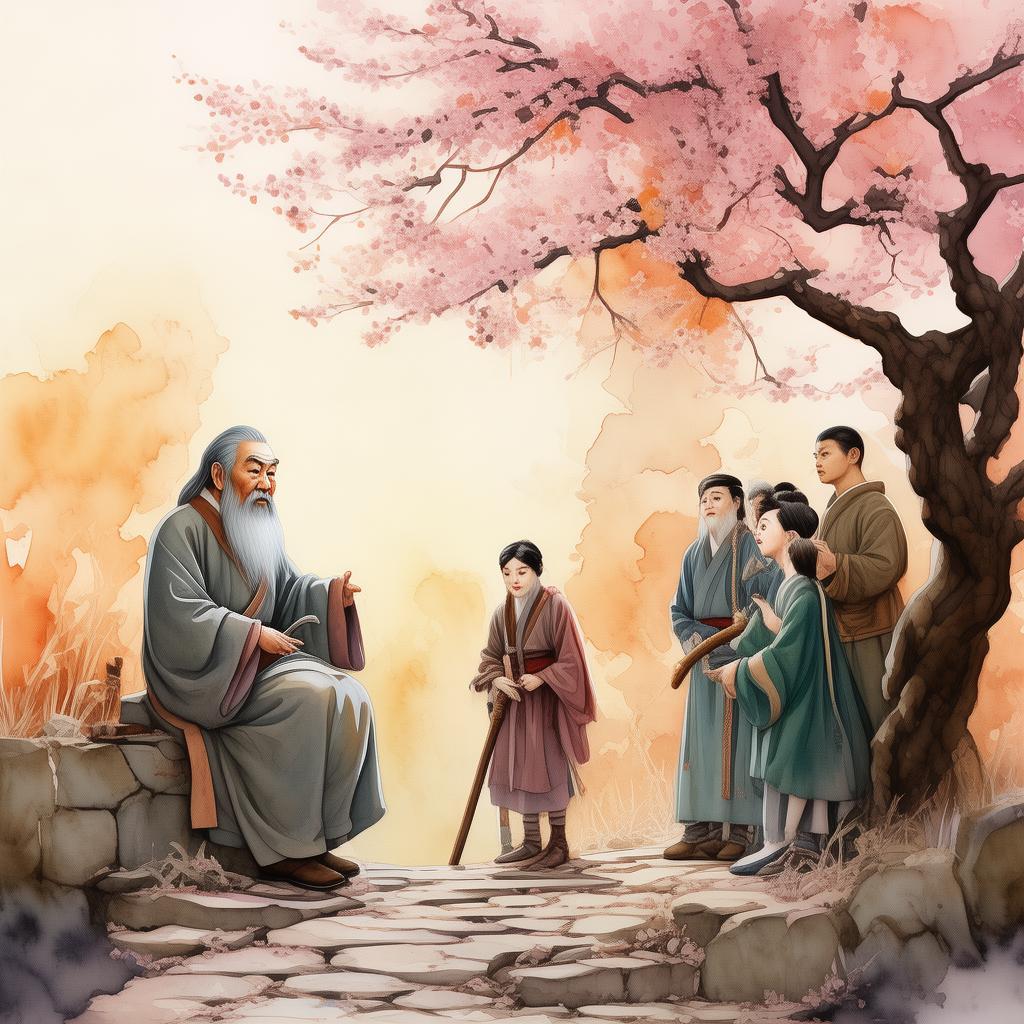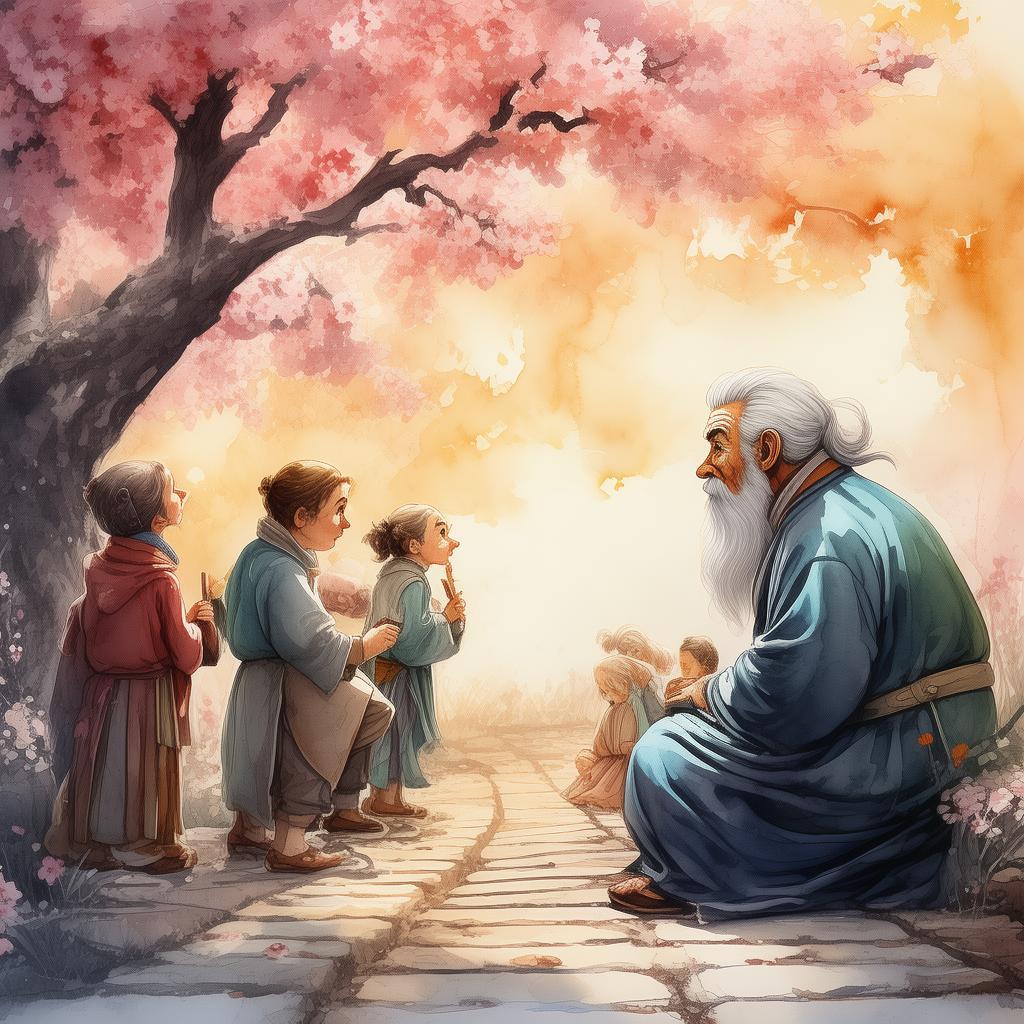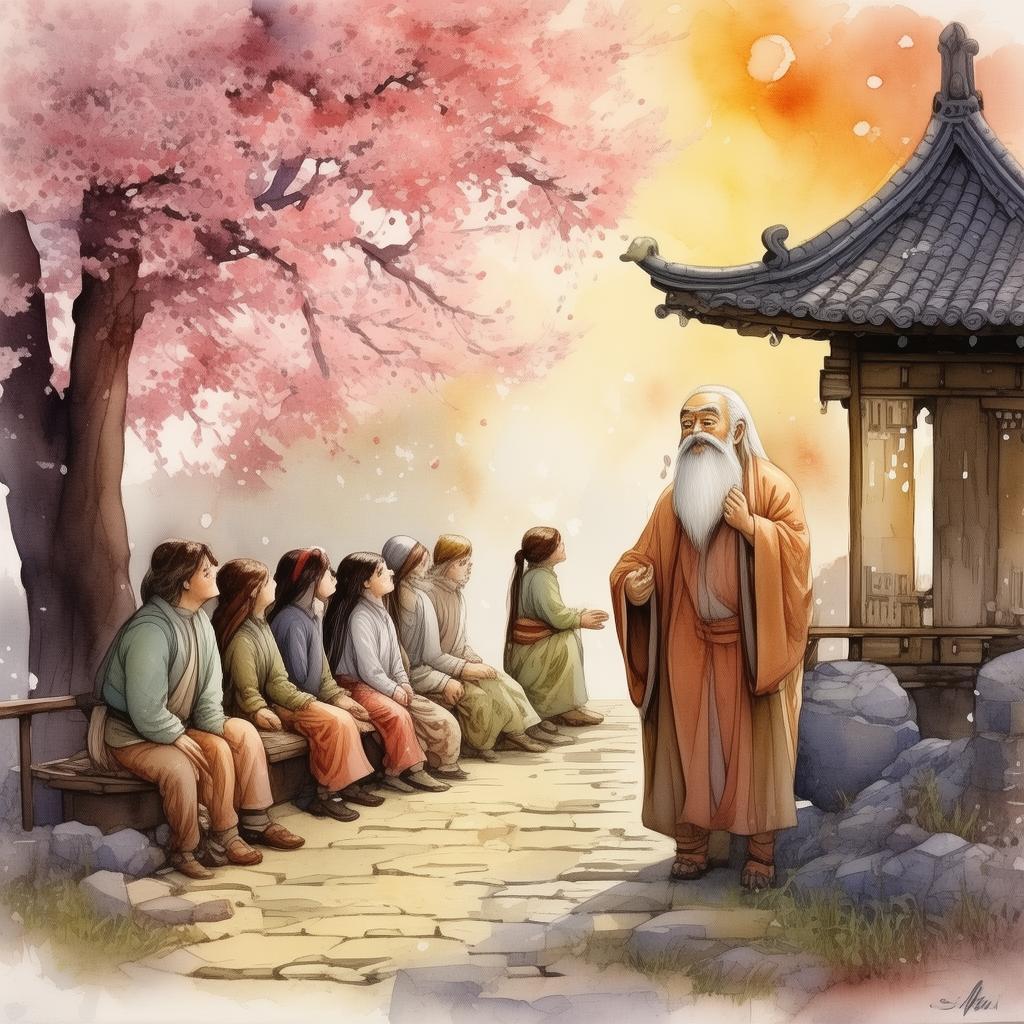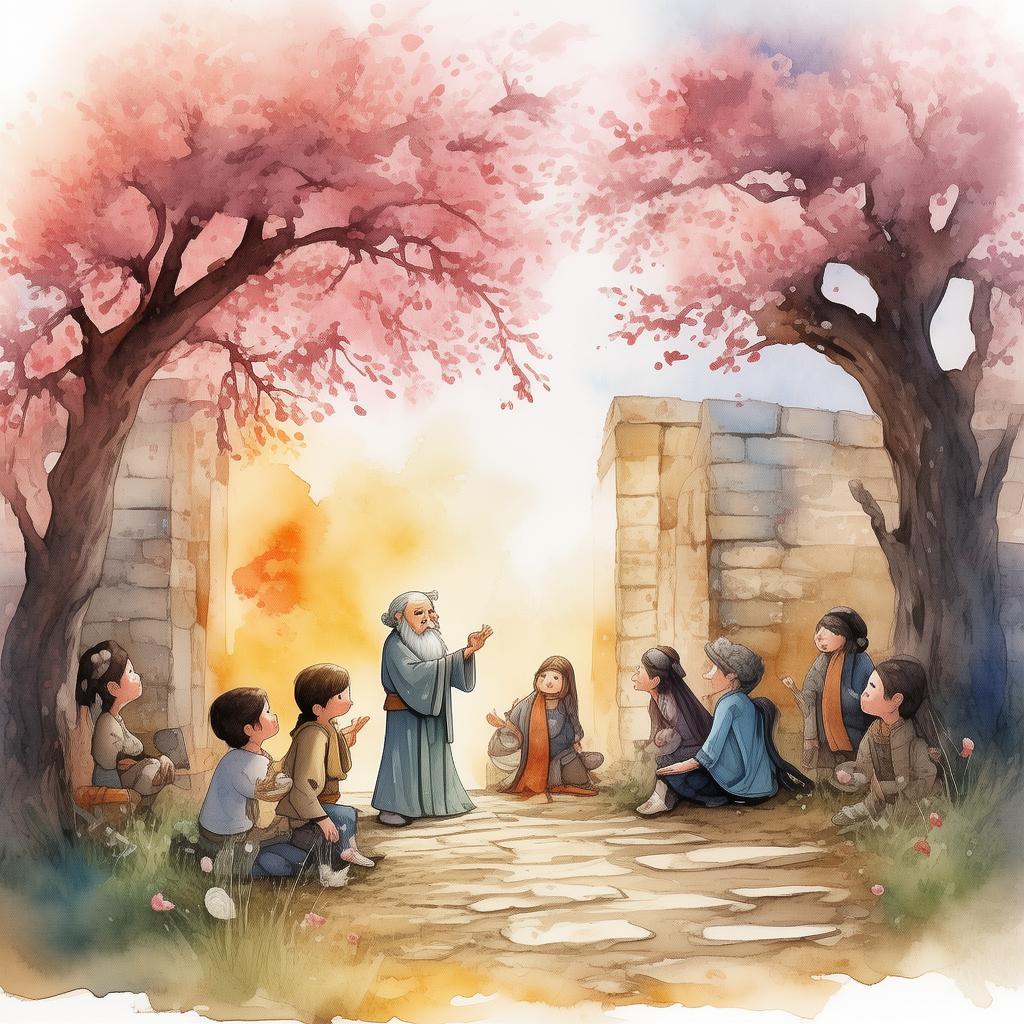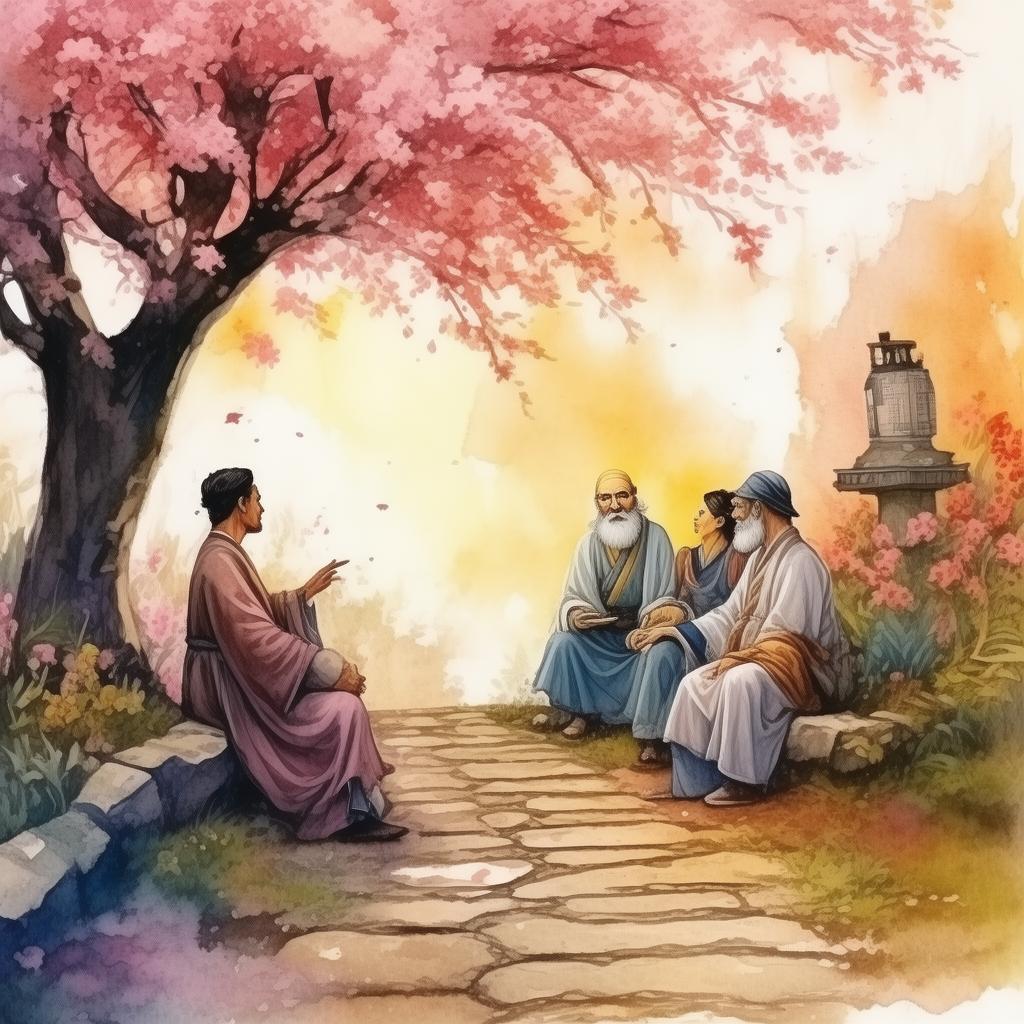The Shadowed Bard: A Tale of Deceit and Redemption
In the ancient land of Liang, there was a bard named Ming who was as much feared as he was revered. Ming was a master of the guqin, a traditional Chinese lute, and his melodies could soothe the soul or stir the blood. But it was not his music that made him famous; it was his tales, spun from the shadows of crime that he witnessed during his days as a bandit.
Ming had once been a respected scholar, but the hardships of life had led him to the path of crime. His banditry was not marked by violence, but by a peculiar brand of storytelling that captivated his listeners. Each tale he told was a blend of fact and fiction, a dance between the truth and the lie, and it was this duality that gave him his title: The Brand of the Bandit Bard.
One moonlit night, as Ming sat by a campfire, his audience was not the usual crowd of bandits and outcasts, but a group of scholars and officials. They had come to hear the bard's latest tale, a story of a nobleman who had been framed for a crime he did not commit. Ming's voice was like a siren's call, weaving a tale of deceit and injustice that left the listeners in awe.
As he spoke, Ming's eyes glinted with a fire that had long since been extinguished in his soul. He had once believed in the righteousness of his cause, but the years had taken their toll. The line between truth and fiction had blurred, and Ming was no longer sure which was which.
The tale reached its climax, and Ming paused, his eyes meeting those of the nobleman in the story. "And so, the nobleman was freed, but at what cost?" he asked, his voice barely above a whisper.
The nobleman, a man of great wisdom and compassion, stood up. "The cost was my life," he said, his voice steady. "But it was worth it. For in freeing me, you have freed yourself from the chains of deceit."
Ming was taken aback by the man's words. He had never expected the nobleman to understand his inner turmoil. "How can you say that?" Ming asked, his voice trembling.
The nobleman smiled, his eyes softening. "Because you have the power to change the world, Ming. With your stories, you can inspire, you can enlighten, and you can bring justice to those who need it most."
Ming's heart swelled with a sense of purpose he had not felt in years. He realized that his tales were not just entertainment; they were a weapon against the darkness that surrounded him. With each story, he could cast a light into the shadows, revealing the truth and exposing the lies.
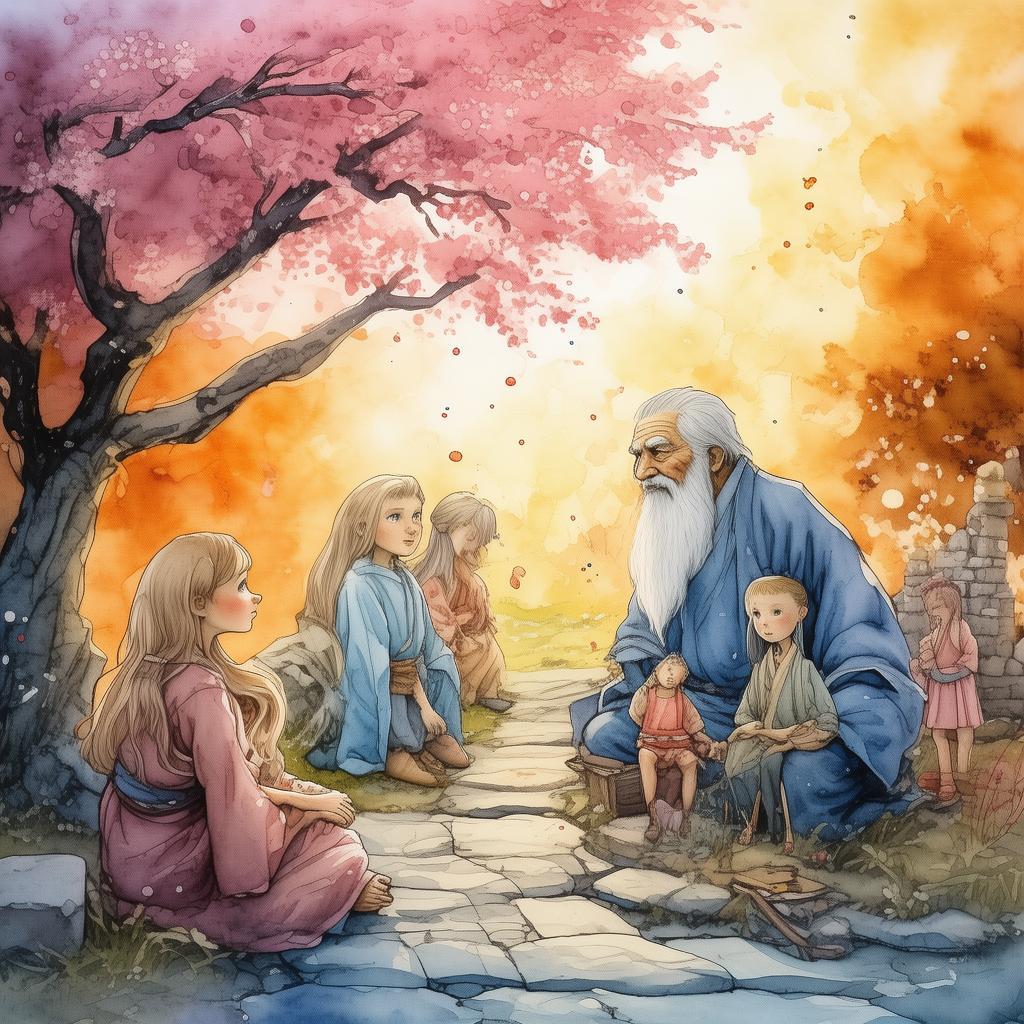
From that night on, Ming's tales began to change. They were no longer just stories of crime and deceit; they were tales of redemption and hope. He used his gift to uncover the truth, to bring justice to the oppressed, and to inspire his listeners to be the change they wished to see in the world.
The Brand of the Bandit Bard was no longer just a title; it was a symbol of hope and a testament to the power of storytelling. Ming's legacy lived on, not in the shadows of crime, but in the light of truth and justice.
And so, the tale of Ming, the Brand of the Bandit Bard, became a legend, a story that would be told for generations, a tale that would inspire and challenge, a story that would remind the world that even in the darkest of times, there is always hope.
✨ Original Statement ✨
All articles published on this website (including but not limited to text, images, videos, and other content) are original or authorized for reposting and are protected by relevant laws. Without the explicit written permission of this website, no individual or organization may copy, modify, repost, or use the content for commercial purposes.
If you need to quote or cooperate, please contact this site for authorization. We reserve the right to pursue legal responsibility for any unauthorized use.
Hereby declared.
